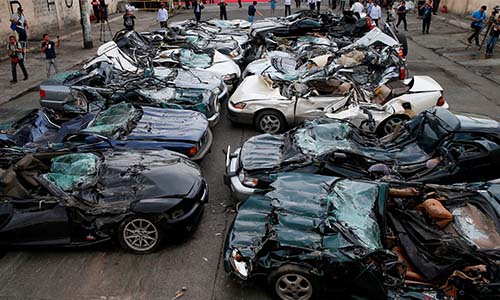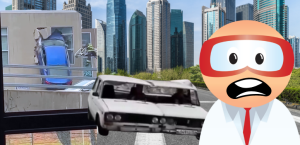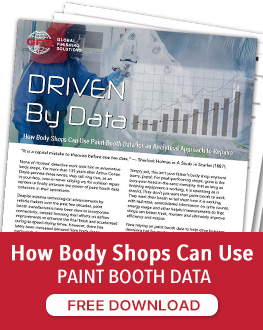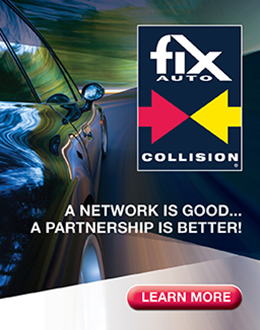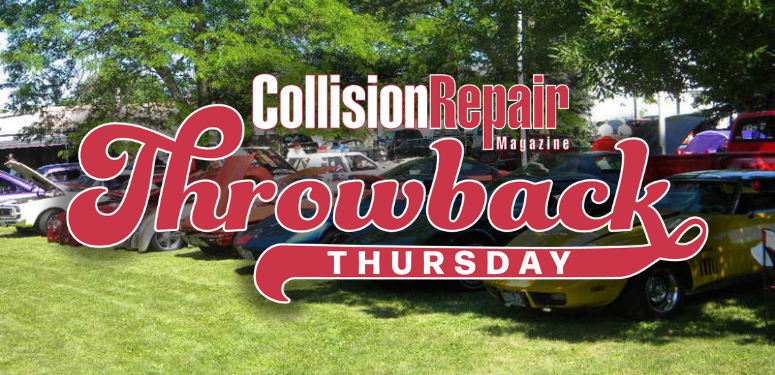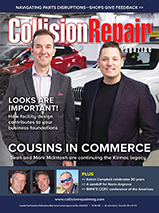By Jeff Sanford
Toronto, Ontario — February 9, 2018 — In today’s Friday Fun: A delivery of diesel ends up in the wrong tank, the Saudi aftermarket is about to boom, Toronto trails New York in reducing pedestrian hits, and much, much more.
– A gasoline delivery driver last week screwed up in epic fashion at an Ultramar station in Prescott, Ontario. Over the course of a couple days drivers in the area ended up filling their tanks with diesel instead of gasoline. Now the station is on the hook for a series of repair bills. According to a report, the worker delivering the diesel got the lines crossed and filled the gasoline pumps with the wrong fuel. One customer interviewed for the news report said her SUV was running rough after filling up. She noticed a strange smell from her engine and suffered a series of engine stalls. She contacted her Toyota service centre and a mechanic said it was the second call he had received that day about a similar problem. Later she saw a post on Facebook notifying locals around the station about the Prescott Ultramar and the diesel problem. “If I hadn’t seen that post on Facebook, I’d never have known,” said the source. To the credit of the station operators, when the driver contacted the Ultramar station, the staffers were “excellent,” she said. http://bit.ly/2FQsgyj..
– In a bid to scare tax cheats in the Philippines into compliance with the law the government recently used bulldozers and backhoes to pound more than two dozen luxury cars into scrap. A report in a Philippine newspaper last Tuesday said the group of cars included Porsches, Mercedes, Jaguars and Corvettes. They were trashed in a dramatic demolition. The country’s authoritarian leader bragged last year about allowing police to shoot and kill drug dealers on site. Now he’s turning his attention to tax cheats who buy luxury cars with their ill begotten gains. According to the report a bulldozer was used to destroy smuggled luxury cars worth USD $1.2 million. Also crushed were a Lexus, BMW and an Audi. The celebratory trashing was held on the 116th anniversary of the founding of the Philippines Bureau of Customs. President Rodrigo Duterte watched as the second-hand vehicles, some valued as high as $115,000, were reduced to piles of scrap in a little over three minutes.” Auto recyclers will get a kick out of Duterte’s short speech before the sacrificial crushing. He is quoted as saying, “Give it to the buyer of [scrap] steel. They cannot have cars like that. But they can get something, make toys out of it.” http://reut.rs/2BHMuMC..
– It is thought that the decision taken earlier this year by the Saudi crown to allow women to drive in the kingdom is about to kick off a boom in all sectors of the auto industry, including the aftermarket. The oil-rich kingdom recently declared that the female half of the population will now be able to drive. That had many predicting “bright prospects” for the Saudi Arabian car industry in advance of the Automechanika car show that took place this past week. Even though only 50 percent of the population currently drives, the Saudi Arabian car industry is the largest auto and auto parts market in the Middle East.
According to a report, the country accounts for 40 percent of all vehicles sold in the region. That number is set to jump as women get behind the wheel. One of the organizers of the show is quoted as saying that the influx of Saudi women drivers will have a significant impact on the auto parts, maintenance and service industries in the kingdom. “Car manufacturers will be the first to benefit in allowing women to drive, along with banks and insurance companies that finance and underwrite new car purchases,” according to the source. At present the kingdom has seven million passenger vehicles in operation, but some nine million new drivers are expected to hit the road over the years to come. With so many new drivers on the road, collision repair shops should do well. Should western shops consider a branch operation? Why not? The source in the story advised car manufacturers and suppliers in the Kingdom to stake their claim early in the market, which is full of opportunities.
According to the source quoted in the story, after the manufacturers boom, “…the aftermarket comes next when these millions of additional cars will require regular repair maintenance, replacement parts, tires, batteries, accessories, car care and grooming… Revenues for the kingdom’s aftermarket was worth more than $6.7 billion in 2016, so it’s already a significant market, and the largest in the Middle East.” http://bit.ly/2Eb04d2.
– Police in a small city in the U.S. issued Facebook warning on Monday, urging residents to steer clear of “… anyone attempting to sell them minor autobody or dent repairs from a parking lot.” A local news report notes that the Peabody Police Department had gotten several calls from residents over the last two weeks advising them that locals had been approached by a man in a parking lot who inquired about doing minor autobody or dent repairs to their vehicles. According to the police the mysterious body man was named Mike Lock, which police suggested was, “probably an alias.” His MO was any cheque for any work done, “… be made out to Angelo Marks – a common name in this type of scam.” The police spokesperson also noted there had been reports of people going door-to-door, offering the same services. The spokesperson advised, “… that it is never a good idea to enter into any such transactions made in parking lots or even by people coming door-to-door, selling auto, home or driveway repairs.” Which might seem obvious, but is a warning that still needs to be repeated, apparently. http://bit.ly/2sauVB7..
– A big new trend in U.S. auto financing takes leasing to a new level. According to a report, the auto industry hopes to solve the boom-or-bust nature of the car sales cycle by offering car subscriptions. Rather than leasing a single vehicle, under this model, consumers pay a monthly subscription fee for the right to use a certain brand’s vehicles. That is, instead of buying a new car every few years, customers would pay car companies every month. Clients are provided with a car. Every once in a while the vehicle is switched up. No one needs to worry about returning a lease, or updating insurance. Everything is taken care of. Manufacturers enjoy a revenue model that is more stable. Already high-end brands like Cadillac, Lincoln, Porsche and Volvo have tested subscription services. BMW and Mercedes are said to be starting comparable services this year (according to Automotive News). But there are a flood of similar new programs coming to the market. A platform called Flexdrive will help dealerships implement car subscription programs. According to Auto Finance News, the service expects to be active in 23 markets by year end. These subscriptions are thought to be a way to hold on to customers in the age of Uber and Lyft.
Ford is about to start a program called Canvas that will offer a subscription service for used cars. According to a report, “Packages start at $400 a month, depending on the vehicle and other options. Customers choose a mileage plan, the same way you’d choose a data plan for your smartphone. If you don’t drive much in one month, the miles roll over to the next. And there’s no contract: you can adjust your mileage plan up or down, even mid-month and return the vehicle at any time, with seven days’ notice. A Canvas subscription also includes comprehensive insurance.”
– The latest budget approved by the city of Toronto will include $9 million in funding for initiatives that will help speed up traffic, including $1.6 million to hire 16 full-time traffic wardens. The city has run a test program that saw Toronto police officers at select major intersections to act as traffic wardens. The data from the test is in and finds that when those officers were, “… actively engaged in managing vehicles and pedestrians, it resulted in a 90 percent reduction in intersection blockage by vehicles and a 70 percent reduction in intersection blockage by pedestrians.” The new budget will see that job given over to the new traffic wardens, who will not be Toronto police, but civilians with ticket-writing authority. The new budget also includes funding for two additional “quick clear teams” that are now being used to remove cars that break down and end up blocking major routes. http://bit.ly/2EnKb2q..
– As John Tory, mayor of Toronto, delivers on his promise to get traffic moving faster in Toronto, it seems vehicle-pedestrian collisions are becoming more of a problem. The issue of car-pedestrian hits has simmered in Toronto over the last year. Far more people are living downtown, and consequently more people are being hit by cars than ever. Tory announced last year he’d like to see the number of collisions drop by at least 20 percent. Activists reacted negatively to the comment, demanding the mayor aim for zero collisions. The mayor eventually signed Toronto on to a program called “Vision Zero” that targets the end of pedestrian-car accidents. New York has signed up to the same program.
A year in, it seems New York is having far more success bringing down the number of pedestrian collisions. In the first weeks of the new year the issue of pedestrian deaths has taken off to a whole new level in Toronto. According to police, two weeks into 2018 there had already been five pedestrian fatalities. Since then police estimated that pedestrian-vehicle collisions are up 250 percent this year. In New York, the mayor announced in January that pedestrian deaths in 2017 were down 32 percent from the previous year, making it the, “… safest year since 1910.”
According to the Toronto Star, 2017 was the worst year in a decade for pedestrian deaths. A local Toronto spokesperson for the group Walk Toronto was quoted as saying that New York City has demonstrated a “Sense of urgency and commitment that was missing [in Toronto].” In New York, officials dropped default speed limits from 30 miles per hour (48 km/h) to 25 miles per hour (40 km/h). It has also been made a criminal offence for drivers to fail to yield to pedestrians. http://bit.ly/2DgxhmV.



